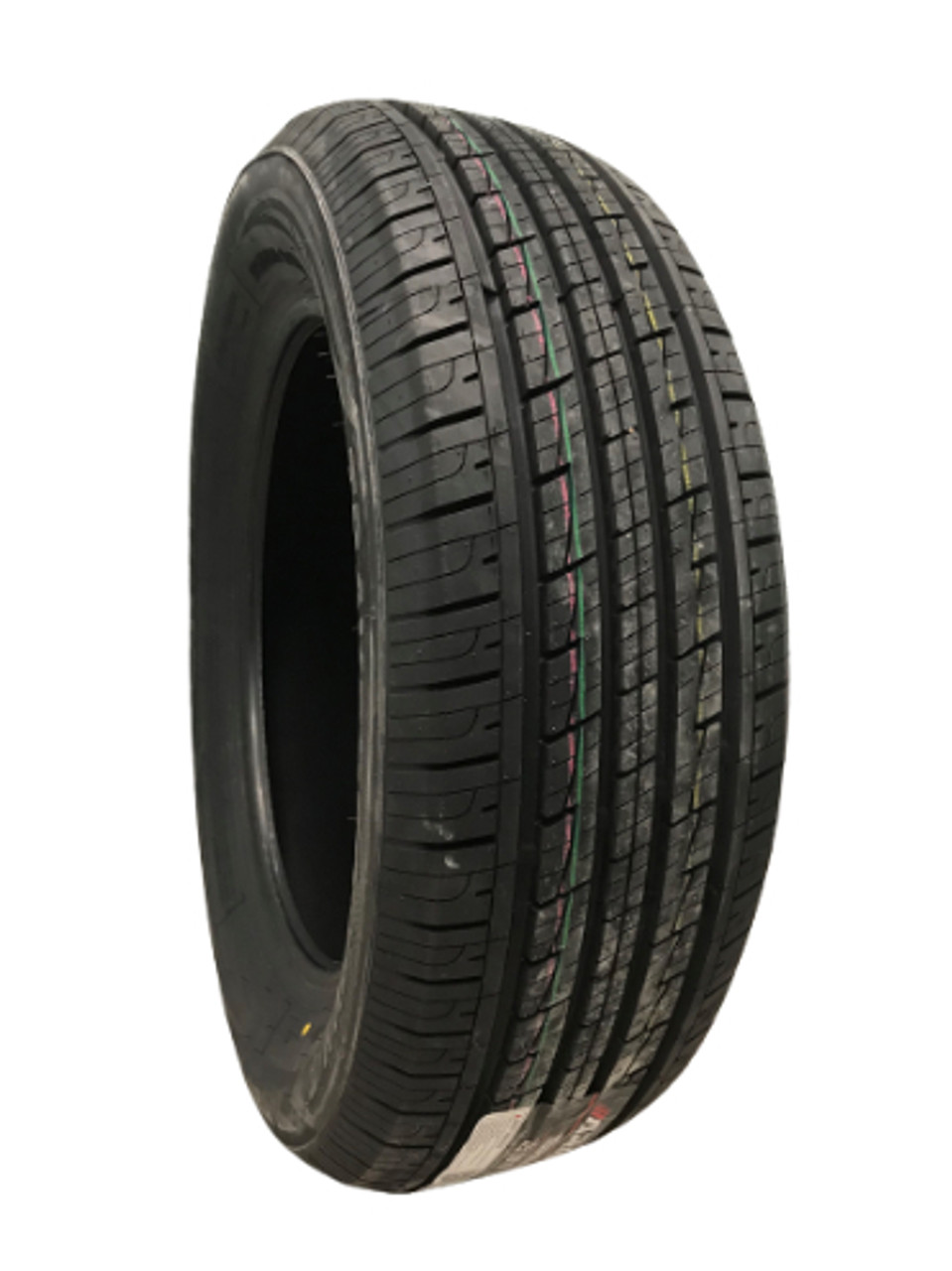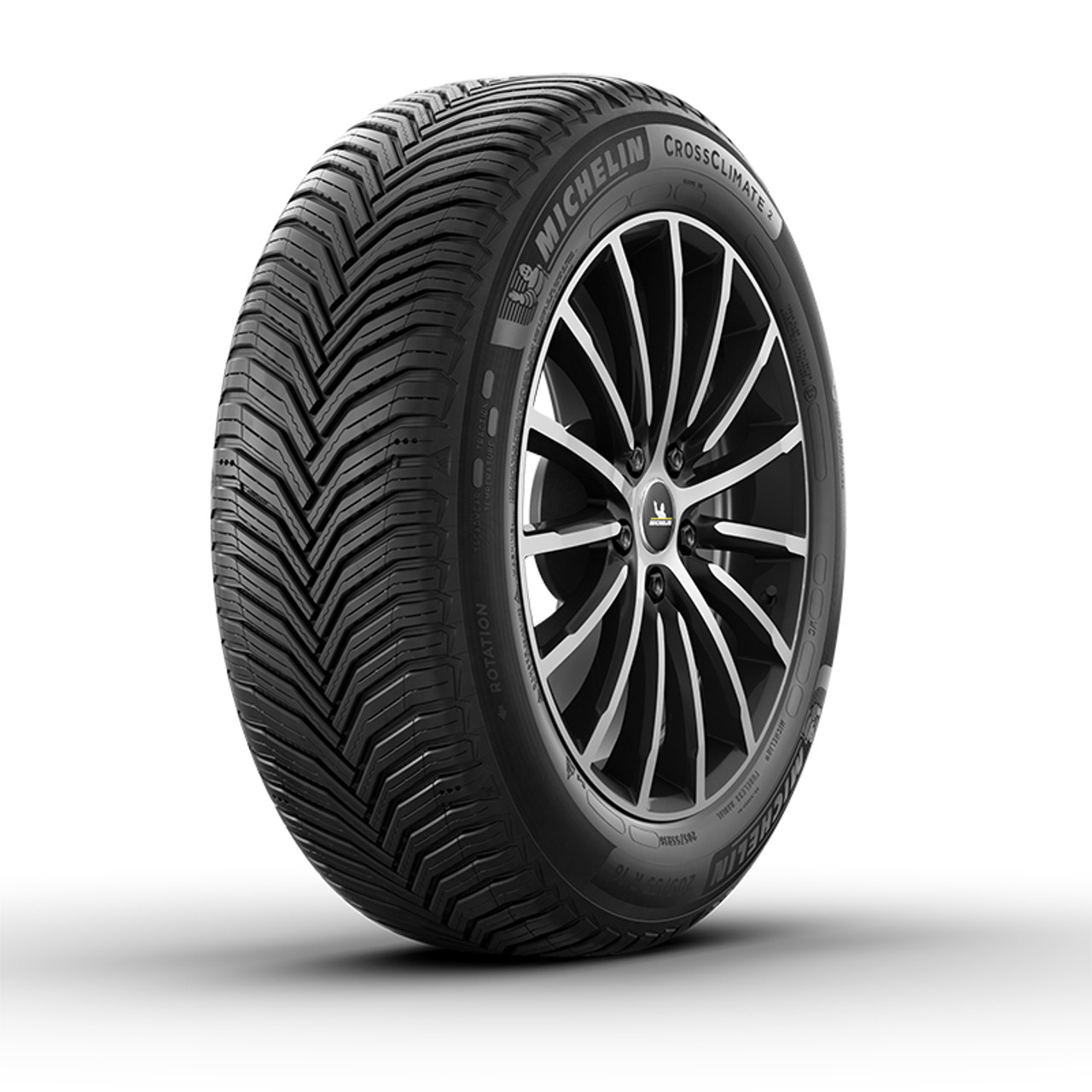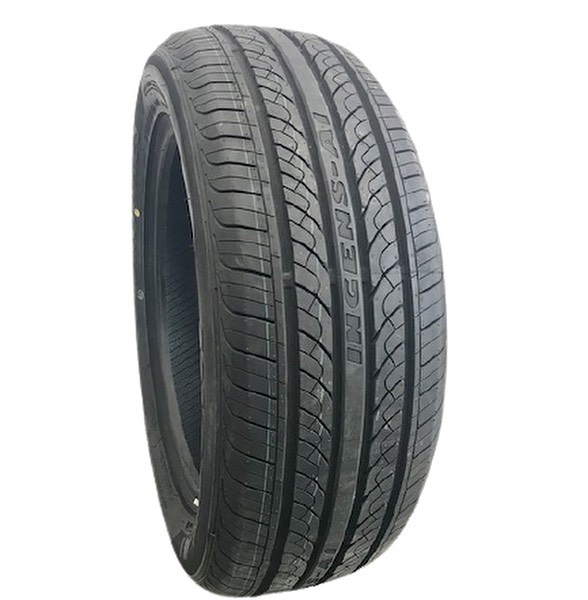Difference Between All Season and All Weather Tires
Posted by The Tire Man on 2024 May 2nd
Introduction to All Season and All Weather Tires
In the quest for the perfect tire to navigate Canada's varied climates, All Season tires and All Weather tires stand out for their distinct advantages. All Season tires offer versatility for dry to wet conditions, ideal for areas with mild winters. All Weather tires, however, are the robust choice, designed to effortlessly tackle everything from spring showers to winter storms, making them a reliable option for Canadian drivers facing unpredictable weather. Understanding the differences between these tires is crucial for selecting the right fit based on regional climate, driving habits, and safety needs.

Key Features of All Season Tires
All Season tires are engineered for versatility, providing reliable performance in a variety of driving conditions. Ideal for warm, dry, and wet climates, they feature a unique tread pattern designed to offer a balanced grip on both hot asphalt and during rain showers, ensuring a smooth and safe driving experience. The composition of the rubber used in All Season tires allows them to maintain flexibility over a broad temperature range, though it tends to harden when temperatures drop significantly, affecting traction in winter conditions. This makes All Season tires a suitable choice for regions with mild winters, where severe snow and ice are less common. Their durability and efficiency in most weather conditions make them a popular option among Canadian drivers looking for a tire that can handle the diverse yet predominantly moderate Canadian climate.

Key Features of All Weather Tires
All Weather tires are the epitome of adaptability for Canadian climates, merging winter tire durability with all-season flexibility. Their tread efficiently channels away water and slush, enhancing wet traction and reducing hydroplaning risks. Crafted to stay flexible in cold, these tires outperform All Season variants in icy conditions, maintaining grip and safety. Ideal for areas with fluctuating weather, they negate the need for seasonal tire swaps, offering a year-round driving solution. All Weather tires are a smart choice for those seeking consistent performance across all weather scenarios, ensuring driver confidence and vehicle stability.

Can You Use All-Weather Tires All Year?
Yes, all-weather tires are designed to be used all year round, providing a balanced performance across a wide range of conditions, from summer heat to winter snow. These tires combine the best features of summer and winter tires, offering the versatility to handle dry, wet, and moderately snowy roads. This makes them a convenient and cost-effective choice for drivers looking to avoid the hassle of seasonal tire changes while ensuring safety and reliability throughout the year.
Difference Between All Season and All Weather Tires
All Season Tires are tailored for milder conditions primarily because of their tread pattern and rubber compound. The tread pattern is designed to efficiently handle dry and wet roads, providing a good balance of performance in moderate temperatures. This makes them versatile for use in spring, summer, and fall. The rubber compound in All Season tires, while durable across a broad temperature range, begins to harden when temperatures drop below freezing. This hardening process reduces the tire's flexibility, resulting in decreased traction and grip on icy or snowy surfaces. Their construction aims to maximize longevity and fuel efficiency in mild to warm climates, where severe winter conditions are a rarity.
All Weather Tires, marked by the 3 Peak Mountain Snowflake symbol, offer a more flexible solution, capable of adapting to both summer heat and winter cold. The key to their versatility lies in a unique rubber compound that maintains its elasticity even in low temperatures, ensuring consistent grip and traction on cold, icy, or snowy roads. Additionally, their tread pattern is more aggressive than that of All Season tires, featuring deeper grooves and biting edges that grip the road in winter conditions. Despite wearing down faster due to the softer, more flexible compound and aggressive tread design, All Weather tires eliminate the need for seasonal tire changes. They are engineered for drivers in regions with unpredictable weather patterns, providing reliable performance year-round, from sunny days to snowy conditions. This adaptability makes them a preferred choice for those facing varied weather conditions, including occasional snowfall and cooler temperatures.
Choosing Between All Season and All Weather Tires: Key Considerations
Selecting the right tire—All Season or All Weather—depends on your local climate, driving habits, and preference for seasonal tire changes. All Season tires excel in mild conditions, ideal for drivers in regions with moderate weather. All Weather tires, however, are versatile across seasons, perfect for areas with unpredictable weather, including cold and light snow. Considering these factors ensures optimal performance and safety. If avoiding the hassle of seasonal tire changes appeals to you, All Weather tires offer a practical solution. Balancing these elements helps drivers make an informed choice, aligning with individual needs and local climate challenges.

Conclusion: Empowering Your Tire Selection
Choosing the right tire—All Season or All Weather—is a decision that significantly affects your driving experience, especially in the diverse climates of Canada. All Season tires offer reliability in mild conditions, ideal for drivers in moderate climates. In contrast, All Weather tires provide enhanced adaptability, capable of handling a broader range of weather conditions, from rainy streets to snowy roads, making them suitable for areas with unpredictable weather patterns.
The convenience of using one set of tires year-round cannot be overstated, especially for those seeking to avoid the hassle and expense of seasonal tire changes. This selection not only impacts your safety and comfort but it also influences your vehicle's performance across different climates.
By considering your local weather conditions, driving habits, and the practicality of seasonal tire changes, you can make a choice that aligns with your needs, ensuring optimal performance and safety throughout the year. Let your tire selection empower your driving experience, offering peace of mind no matter what the weather brings. For the best quality and cheapest all season and all weather tires on the market, view our range of tires.



